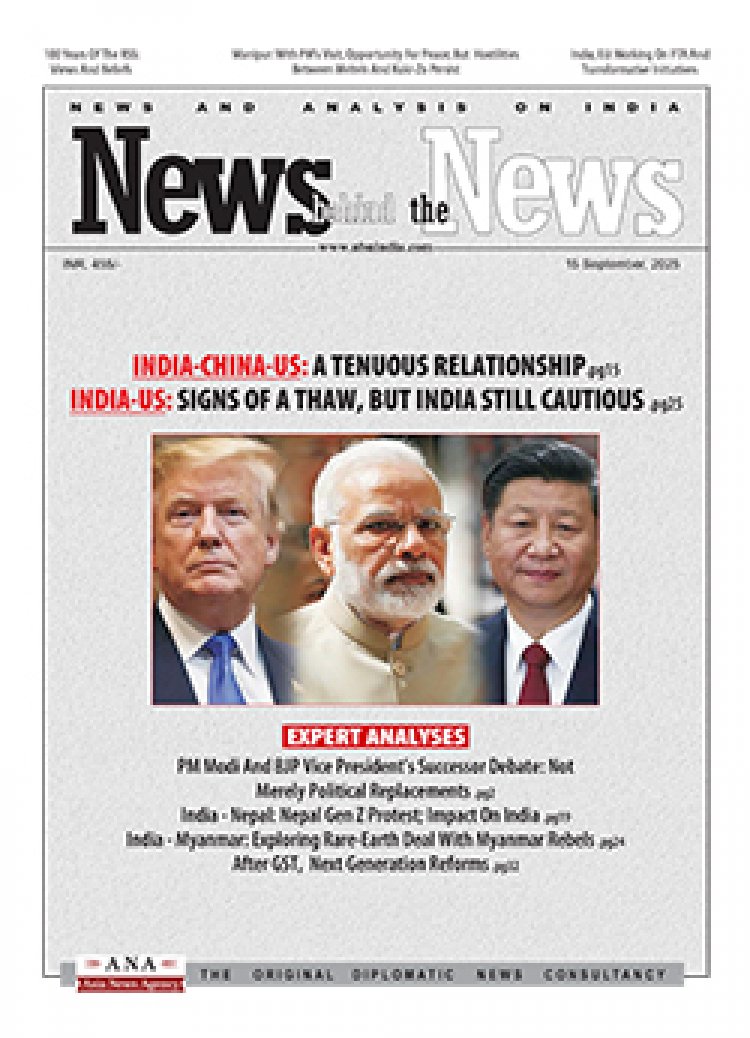Indus Waters Treaty: Pakistan Willing to Discuss Terms
STORIES, ANALYSES, EXPERT VIEWS

Days after India notified Pakistan that it was placing the 1960 Indus Waters Treaty (IWT) in abeyance with “immediate effect” following the Pahalgam terror attack, Islamabad has — for the first time — signalled its willingness to discuss Delhi’s concerns about the treaty.
Pakistan’s willingness to engage on the Indus Waters Treaty is being discussed within the government now that hostilities have paused after four days of military confrontation. India is keen to utilise the water in the river, by building dams and reservoirs to store water, and utilise it for power generation too. Islamabad’s engagement is aimed at stalling such plans, since any construction would change the status quo on the ground.
Despite the ceasefire, New Delhi has remained firm on maintaining all coercive diplomatic measures, the most important being the suspension of the IWT.
Last Tuesday, MEA spokesperson Randhir Jaiswal reiterated this stance, saying, ‘The Indus Waters Treaty was concluded in the spirit of goodwill and friendship, as specified in the preamble of the treaty… India will keep the treaty in abeyance until Pakistan credibly and irrevocably abjures its support for cross-border terrorism. Please also note that climate change, demographic shifts and technological changes have created new realities on the ground as well.’
This aligns with Prime Minister Modi’s first message to the nation after Operation Sindoor, in which he signalled his intention to keep the treaty suspended by saying, ‘water and blood cannot flow together’.
It is understood that if and when negotiations begin on modifications to the treaty, India will insist that these be a completely bilateral exercise with no involvement of any third party. Accordingly, it is unlikely that India would agree to the World Bank’s — or anyone else’s — assistance in brokering revisions.
The IWT has ignored critical issues like groundwater, water quality, and water demand management
It’s a miracle, writes Asit K Biswas (leading international authority on water; winner of the Stockholm Water Prize) and Cecilia Tortajada (honorary professor at the University of Glasgow. Both are Visiting Research Professors at the Centre for Policy Research, New Delhi) “that IWT has lasted some 65 years, even though, over the past three decades, there have been increasing signs that the pact was becoming less and less relevant to both countries. During the last decade, it was evident to any objective observer that the Treaty needed major modifications to become relevant to both countries in the post-2025 period.”
This is due to many reasons. “Increases in population, urbanisation and economic activities and improvement in living standards have led to a very significant escalation in water demands. Poor management practices have exacerbated the water problems of both countries. Neither country has given much attention to managing demand and maintaining water quality. The main focus has been to increase supply availability, which is no longer possible in an arid dry region.”
In addition, the Green Revolution both in India and Pakistan, after the Treaty was signed, had an impact. While food production increased significantly, “water demands in Indian and Pakistani Punjab went up concomitantly. Water tables in both Indian and Pakistani Punjab have been declining by over 50 cm per year. In many areas of Punjab in both countries, water levels have been declining by over one metre each year.”
Such unsustainable practices, write the two authors “cannot continue, especially as around 85 per cent of water requirements in India, and 90 per cent in Pakistan, are accounted for by the agricultural sector……The Indus treaty addressed only surface water. It ignored critical issues like groundwater, water quality, and water demand management."
IWT was signed in 1960, “when threats like climate change, heatwaves, glacier melt, and sea level rise were not recognised. The water management practices of that time have become outdated. There was little understanding of the complex linkages between water, food, energy, and environmental securities……Droughts and floods in the Basin are becoming more frequent and intense. Meanwhile, the northern Indian Subcontinent is experiencing unprecedented heat waves…..This situation is expected to worsen after 2030, as global warming continues to intensify. The IWT does not include such important considerations.”
Irrespective of what happens to the treaty, the two authors conclude “both countries will need to address serious water problems. They have to re-imagine the management of water needs, including in the Indus River Basin."
















